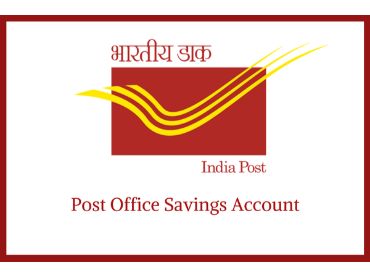
Introduction
Taking a loan against property (LAP) is an excellent way to leverage your real estate asset to get the required funds. By pledging your property as collateral with a financial institution, you can avail credit at generally lower interest rates compared to unsecured loans. With multiple LAP options available in the market, you can easily choose one that best suits your requirements. In this guide, we will explore the different types of loans against property, eligibility parameters, and more.
Loan Against Commercial Property
A commercial property refers to any official space, shop, or industrial real estate that you own. Loan against commercial property allows you to fulfill various needs such as business expansion or personal financial obligations. Additionally, you can also choose to invest in a new venture with the acquired sum. The interest rates for commercial areas are more competitive due to the nature of their usage. However, the loan amount sanctioned by financial institutions will be based on the property's current market value.
Lease Renting Discounting
With lease renting discounting, you can avail funds by pledging your rented or leased property as collateral. To apply for such loans, you must submit monthly rental receipts to the lender. The lender will assess your overall cash flow based on these receipts and determine the loan amount. Moreover, the financial institution will consider the EMI coverage from the monthly rent obtained. Opting for such loans may allow you to receive a higher sum to manage your financial requirements.
Loan Against Residential Property
Similar to a loan against commercial property, you can pledge your residential real estate to avail funds. Many borrowers prefer this type of LAP, especially during emergencies. The funds received through such loans can be used to consolidate multiple debts for repayment or renovate your home.
Loan Against Co-owned Property
If your property has two or more co-owners, you can opt for a LAP against the co-owned property. However, before mortgaging the property, you need to produce a No Objection Certificate signed by all co-owners for further processing of your application. It is important to note that these rules and regulations may vary depending on the lender.
Top-Up Loan Against Property
A top-up loan against property, also known as a second mortgage, can be taken over and above an existing loan on your property. However, the eligibility criteria for these loans are more stringent compared to others. Lenders assess your repayment history, credit report, and other related parameters before approving a top-up loan. An optimal credit score and a spotless credit history can increase your chances of an easy and hassle-free loan approval. This also includes favorable terms such as an affordable loan against property interest rate and nominal fees.
Other Types of LAP
Apart from the aforementioned types of LAP, some lenders also offer credit based on the usage and your employment type. These specialized loan options cater to specific needs and can be explored based on your requirements. It is advisable to research and compare different lenders to find the best fit for your needs.
Eligibility Requirements for a Loan Against Property
Before applying for a LAP, it's essential to check if you meet the eligibility criteria. While most lenders have similar parameters, there may be slight variations. Here are some common eligibility requirements for loans against property:
- Nationality: Indian
- Age: 21-70 years
- Monthly income: Minimum ₹30,000 (if salaried)
- Self-employed individuals must provide business proof with a profit and loss sheet
For self-employed applicants, lenders also set a minimum criteria for the number of years the business has been in operation. Staying updated with these requirements can help you avoid scenarios like loan rejection.
Documents Required for a Loan Against Property
Once you meet the required eligibility criteria, you need to submit specific documents to the lender for verification after the approval of your loan. These typically include:
- Proof of Identity: Aadhaar card, PAN card, voter ID, passport, or driver's license
- Proof of Address: Aadhaar card, voter ID, passport, driver's license, or utility bills
- Bank statements of the last 3 months
- Past three salary slips or ITRs filed (as per occupation)
- Original documents of the pledged property
Conclusion
In conclusion, there are various types of loans against property that you can choose from based on your specific needs. Before applying for a loan, carefully assess your financial requirements and repayment capacity. It's important to read the fine print and understand all the terms and conditions associated with the loan. Remember, defaulting on the loan can lead to the lender seizing the pledged asset. Conduct thorough research, compare lenders, and make an informed decision to ensure a smooth borrowing experience.
Subscribe our monthly newsletter to know more about offers and new tips we share on how to manage your finance.















